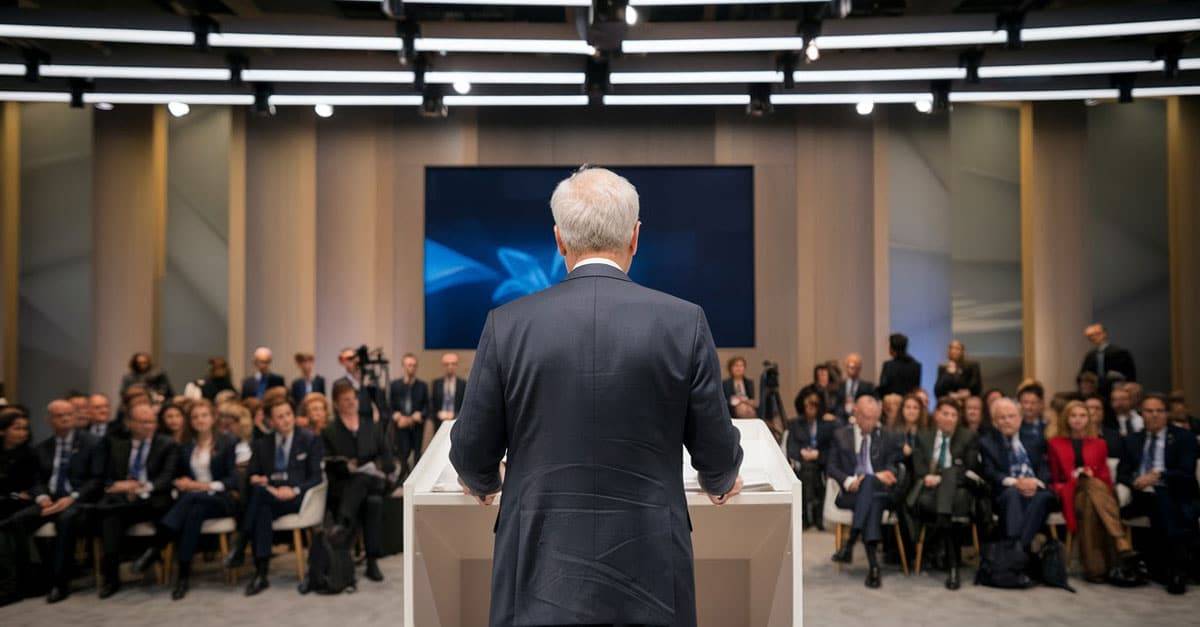The World Economic Forum (WEF) announced Collaboration for the Intelligent Age as the overarching theme for Davos 2025. This theme encompassed five thematic priorities:
- Rebuilding Trust
- Reimagining Growth
- Industries in the Digital Age
- Investing in People
- Safeguarding the Planet
While these priorities are not new to the Davos agenda, their framing and descriptions for 2025 offer valuable insights into the current state of global politics and business. In this analysis, we explore each priority and provide guidance for Ultra High Net Worth Individuals (UHNWIs) on how to approach these themes in their strategic planning for the months ahead.
Thematic Priority: Rebuilding Trust
Guiding question:
How can stakeholders find new ways to collaborate on solutions both internationally and within societies?
Your Wealth, Our Priority: Altoo's Consolidation Power, Secure Document Management, and Seamless Stakeholder Sharing for High Net Worth Individuals. Preview Platform.
What UHNWIs should know:
The general theme of trust has been frequently discussed at Davos over recent years, but specific emphasis on types of trust have evolved. At Davos 2022 (overarching theme: “Working Together, Restoring Trust”), the focus was on rebuilding trust across various institutions and societal structures, impacted by factors including the COVID-19 crisis, geopolitical tensions, and economic uncertainties. While the Russia-Ukraine conflict was a significant element, the 2024 meeting (overarching theme: “Rebuilding Trust”) addressed a broader erosion of trust in global cooperation and the ability of the international community to address shared challenges effectively. At Davos 2025, “Rebuilding Trust” has reappeared as a thematic priority, this time focusing on fostering collaboration and finding common solutions in a world facing societal divides, geopolitical multipolarity, and shifts towards protectionism in an increasingly digitalised economy.
Clearly, there is a great deal of mistrust and uncertainty around the world these days. For business leaders and politicians, addressing the associated risks – which affect everyone – requires diplomacy, open dialogue, and collaborative solutions.
Like everyone, UHNWIs have a vested interest in global peace and societal cohesion. Unlike most, however, they seek to preserve significant wealth despite geopolitical uncertainty. For them, addressing this uncertainty with respect to their holdings requires a heightened emphasis on diversifying their portfolios and ensuring the security of their assets.
Thematic Priorities: Industries in the Intelligent Age and Reimagining Growth
Guiding questions:
How can business leaders strike a balance between the short-term goals and long-term imperatives in the transformation of their industries?
How can we identify the new sources of growth in this new global economy?
What UHNWIs should know:
These thematic priorities represent two facets of the same digitalisation challenge: How business leaders can effectively navigate rapid technological advancements and how governments can adapt policies to foster sustainable growth in this evolving global economy.
At Davos, technological innovation – especially with respect to the Fourth Industrial Revolution, a term that WEF Founder Klaus Schwab used in the title of his 2016 book – is a mainstay discussion topic, but this year’s emphasis on artificial intelligence should not be overlooked. The 2025 edition has been the first ever to feature the word “Intelligent” in the title of its overarching theme. Note The 2024 edition was the first to explicitly feature the term “artificial intelligence” in the title of a thematic priority (“Artificial intelligence as a driving force for the economy and society”).
Artificial intelligence is front and centre at Davos 2025, and it should be very high on – if not at the top of – every UHNWIs’ radar with respect to evaluating potential or existing investments in 2025. The accelerating adoption and deepening integration of this technology across multiple industries in the coming months and years will likely mark a significant inflection point in global economic history.
Thematic Priority: Investing in People
Guiding question:
How can the public and private sectors invest in human capital development and good jobs that contribute to the development of a modern and resilient society?
What UHNWIs should know:
Topics like economic inclusion, the future of work, and jobs creation have been a constant undercurrent throughout the WEF’s history. Of late, this conversation is increasingly focused on the rapidly expanding capabilities of modern technology and how it is set to revolutionize how people work – or do not work. As the WEF explains in the description of this year’s version of this thematic priority: “Among the most urgent of these impacts [of technological advancements] is the need to reskill and upskill people to meet the demands of the economy of tomorrow.”
That this topic was addressed at Davos 2025 should not be a surprise to the ultra-wealthy. Many of the companies UHNWIs own or invest in have likely been exploring automation of business functions for years.
UHNWIs should, however, take these discussions at this year’s meeting as a reminder to explore just how effective technology has become at handling routine tasks not just on the factory floor but also in the office or even at home. For example, advanced software can streamline much of the analytical legwork that goes into evaluating and tracking the highly diversified portfolios that UHNWIs have built to mitigate risk and preserve their legacies across generations. Such solutions are not just something to read about in the business press and WEF news releases – they are something UHNWIs, their family members, and their advisors can easily take advantage of firsthand.
Thematic Priority: Safeguarding the Planet
Guiding question:
How can we catalyse energy, climate and nature action through innovative partnerships, increased financing and the deployment of frontier technologies?
What UHNWIs should know:
Here, the important thing to note is not that the WEF is asking this sort of question – it has frequently appeared in one form or another on the Davos agenda – but rather that global regulators have recently provided concrete answers.
The European Union’s Corporate Sustainability Reporting Directive (CSRD), which requires most large enterprises operating in Europe to provide comprehensive sustainability reporting covering environmental, social, and governance (ESG) factors, came into effect at the beginning of 2024, with the first reports due in 2025. Similarly, climate-related disclosure rules proposed by the United States Securities and Exchange Commission are expected to take effect in 2025 for companies traded on the country’s stock markets.
Until last year, provable progress towards sustainability was a nice-to-have for large companies in Europe. Now it is a must-have for them, as it will likely soon be for many American companies. This means UHNWIs investing in publicly listed American or European companies will need to perform due diligence on not only these companies’ financials but also their “sustainables.”
Taking Action with the Altoo Wealth Platform
Most of our recommendations for UHNWIs based on the WEF’s thematic priorities are necessarily broad, as might be expected when discussing global leaders’ high-level talking points. For example: While sustainability reporting is now mandated, its implementation is just beginning, and the practice of conducting due diligence on sustainability reporting capabilities remains largely undefined.
Our recommendation to leverage modern technology to streamline day-to-day financial affairs, however, is immediately actionable. We have designed the Altoo Wealth Platform to make this process as quickly, easily, and beneficially as possible. The software solution automatically consolidates, analyzes, and visualizes asset data pulled from multiple sources across even the most diversified portfolios, giving UHNWIs peace of mind that their total wealth is under full control. Built, hosted, and managed exclusively in Switzerland – home to the annual WEF meetings – the platform ensures that wealth owners’ data is protected according to the highest standards.
To learn more about the Altoo Wealth Platform and how it can help you achieve your financial goals for 2025, please get in touch!

















